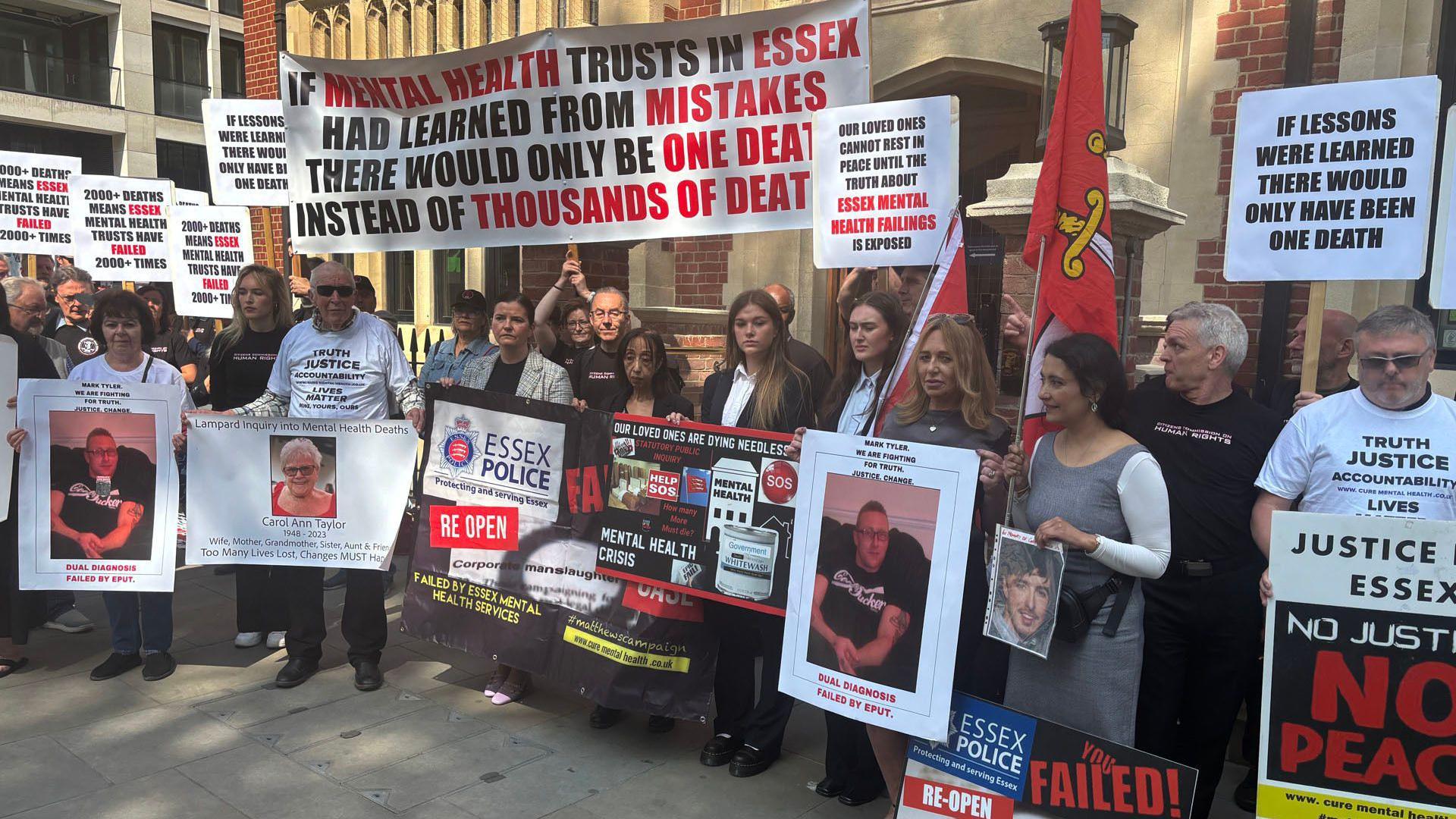'Good will come out of Britain's first mental health inquiry'
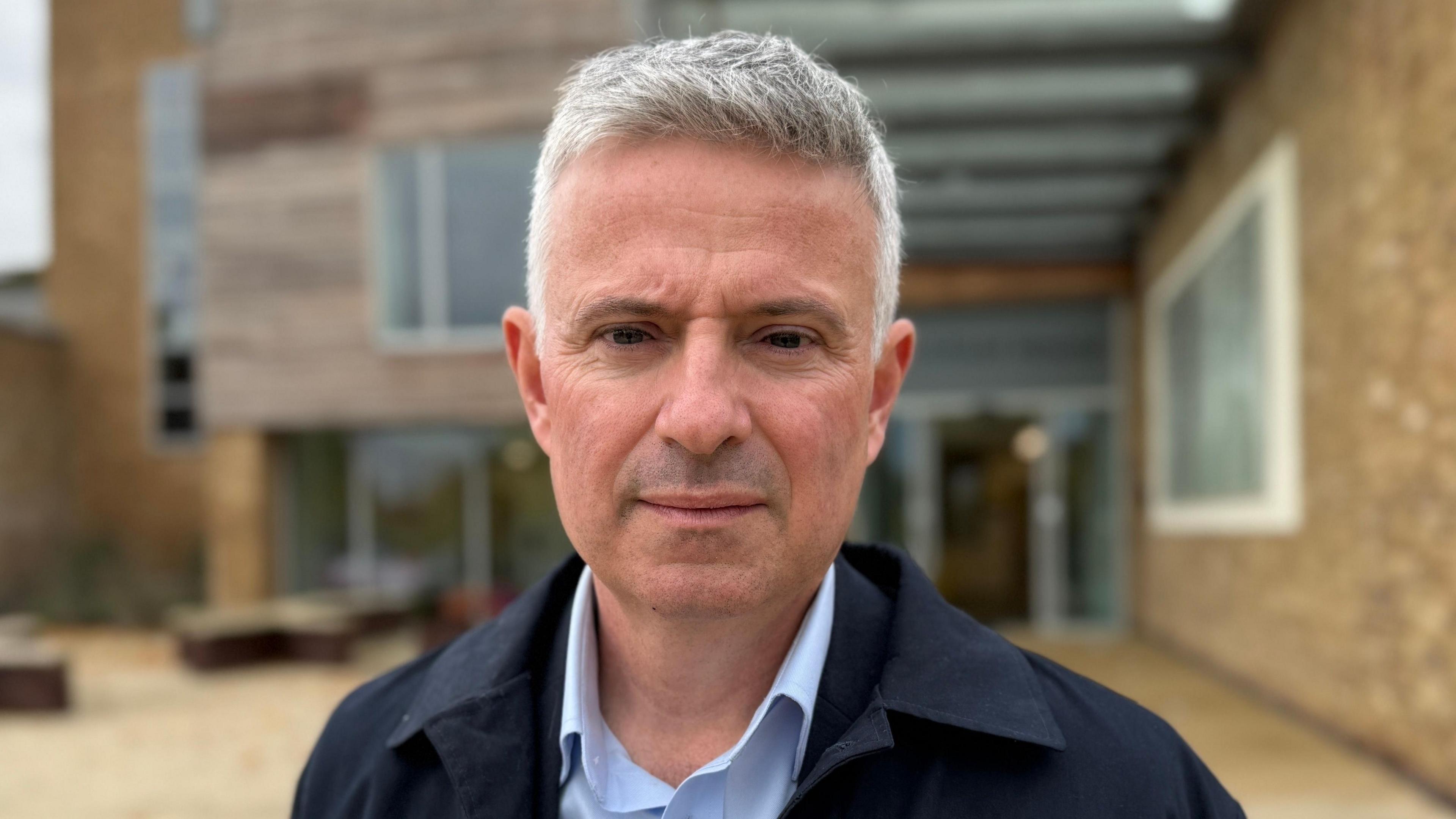
Paul Scott has been chief executive of the Essex Partnership University NHS Foundation Trust since 2020
- Published
The boss of a mental health trust that is the focus of a landmark public inquiry says his staff have a "real drive" to improve the service and that "good will come of this".
The Lampard Inquiry is investigating more than 2,000 patient deaths in Essex over a 24-year period.
It is England's first examining mental health services and the Essex Partnership NHS Foundation Trust (EPUT) has been the subject of scathing criticism.
In his first sit-down interview with the BBC, EPUT chief executive Paul Scott says the deaths happened against a backdrop of national underinvestment but he concedes the inquiry does not feel "unfair".
The Lampard Inquiry has been adjourned until February 2026, and Mr Scott has been speaking to me about the key things he wants to see happen.
Increased funding
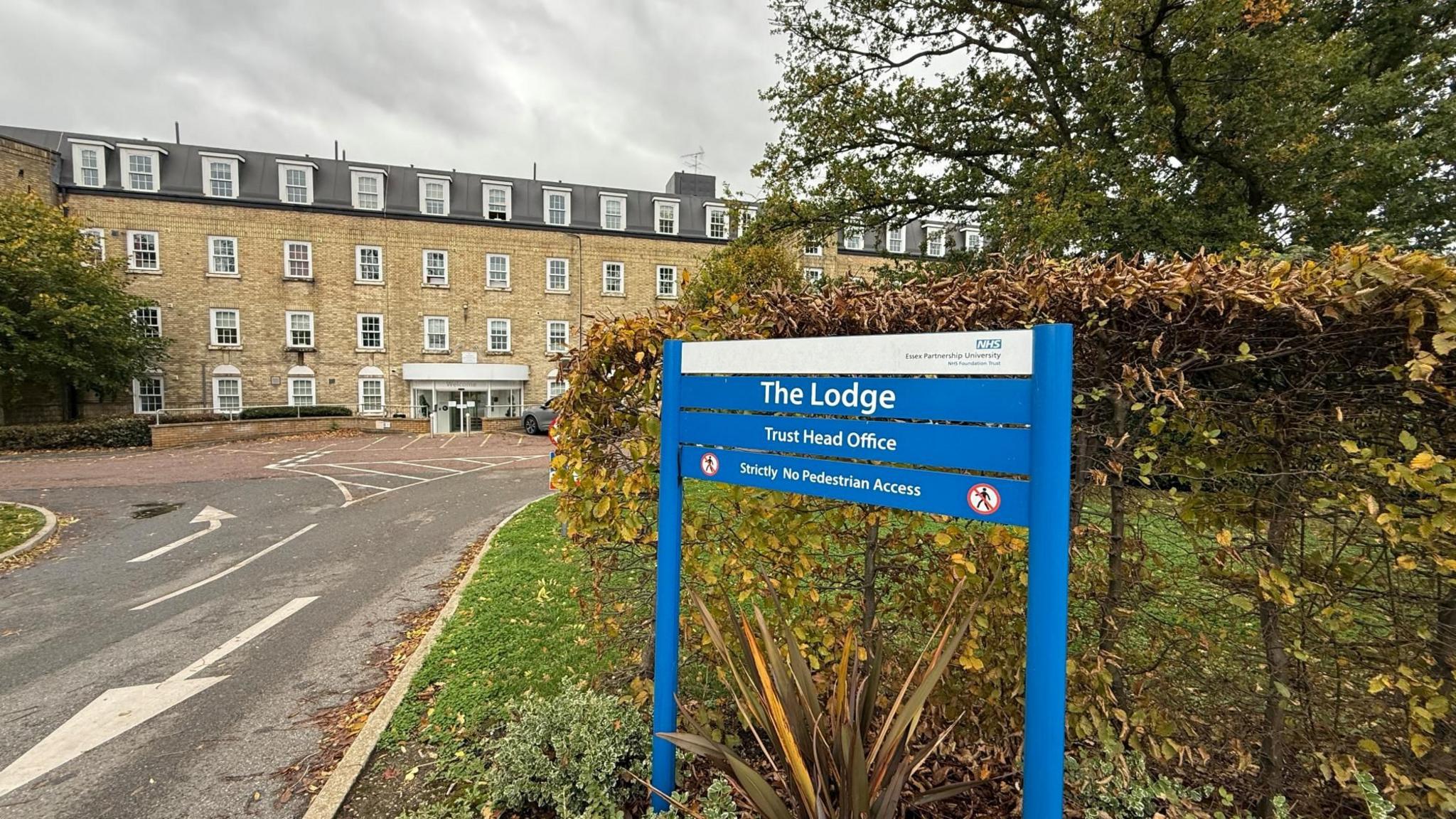
The EPUT headquarters are in Runwell near Wickford
Deep-rooted cultural failures are being uncovered at the inquiry, which is chaired by former barrister Baroness Kate Lampard.
Mr Scott says mental healthcare had not been funded properly for two decades.
But says there was hope in 2016, when the Conservative government introduced the mental health investment standard to give it parity, external with care for physical health.
There is a question mark over whether that was ever achieved, external, but nonetheless, Mr Scott says care has improved including "really important" community services.
Uncertainty over future investment remains.
Mr Scott claims this 2016-17 funding commitment will effectively stop next year with "no planned increased investment into mental health".
The NHS mental health trust for Cambridgeshire and Peterborough has also warned it won't receive the funding increase it needs to tackle waiting lists.
Mr Scott says the NHS could be saving money by consolidating newer services like urgent care teams in hospitals, the 111 crisis service and staff in GP practices.
"It makes me concerned that there won't be a long-term plan for mental health investment," he says.
With children struggling with the effects of the Covid-19 pandemic "I think there's the case to be made", he continues.
"Those children will become adults at some point, so I think investment in children's mental health now and investment in adult mental health in the future is unavoidable.
"So how do we create the funds for that? Do we do it all through our own efficiency, or are the public funds further invested, I think is a really big question."
In 2024-25, 8.8% of the overall NHS budget , externalwas spent on mental health, according to the charity Mind.
In response to Mr Scott's concerns, the Department of Health and Social Care says it is increasing investment in mental health care by "an extra £688m this year, meeting the mental health investment standard".
It says it will be recruiting 8,500 additional mental health workers, delivering more talking therapies and rolling out more mental health support teams in schools and colleges.
"We are strongly committed to giving mental health the same attention and focus as physical health," a government spokesperson says.
More nurses on wards
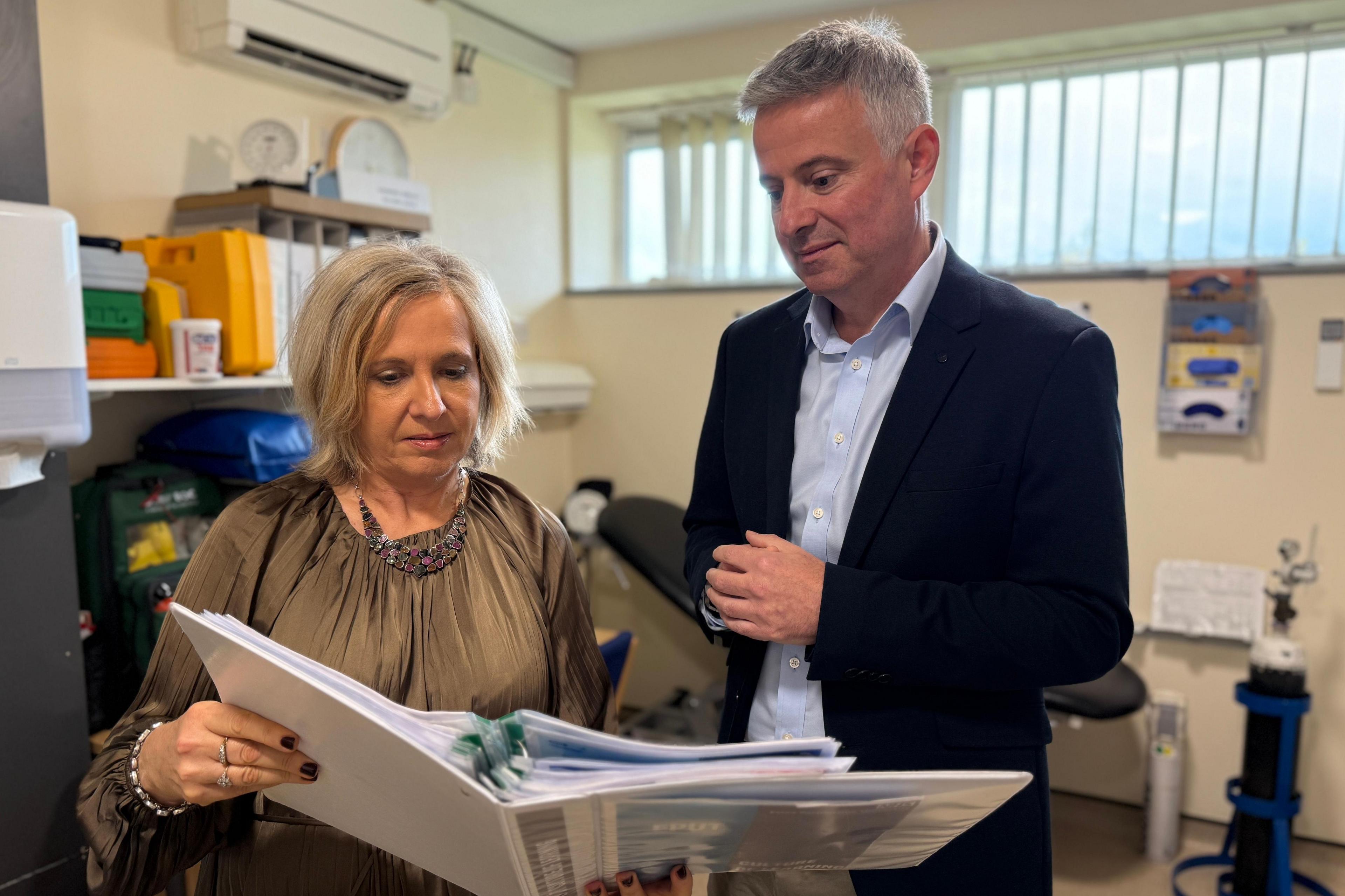
Mr Scott, pictured with EPUT director of communications Martine Munby, says the trust is helping more than 100,000 people at any one time
The inquiry has highlighted a long-term reduction in registered mental health nurses on wards in favour of healthcare support workers (HCAs).
A former chief nurse told the inquiry HCAs were "cheaper" and the move compromised good care.
Mr Scott says it was the pandemic that led to an "absolute scarcity of nurses".
"Lots of people retired early, lots of people went abroad and lots of people left the profession," he explains.
Mr Scott says 2022-23 saw one of the "biggest overseas recruitment of nurses in mental health" to try easing the crisis.
Ninety nationalities work for EPUT and there has been a 21% increase in nursing staff in three years.
Nurse vacancy rates have reduced from 19% two years ago, to 12% in 2024-25., external
But Mr Scott recognises employing international staff is not a long-term solution and says more staff now come from local universities like Anglia Ruskin in Chelmsford.
The trust has also been successful in reducing the number of agency workers in favour of permanent staff.
However, because of increased demand, the Royal College of Nursing warns that the NHS Long Term Workforce Plan, external needs the number of training places for mental health nursing to increase by 93% by 2031-32., external
Make wards caring places
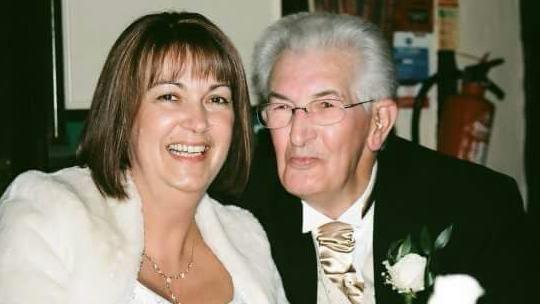
Geoff Toms, pictured with daughter Lynda Costerd, suffered numerous injuries after being admitted to a mental health unit in Essex
One relative giving evidence at the Lampard Inquiry said ward environments felt "more like prisons".
Lynda Costerd said her father Geoff Toms, 88, was placed in nappies, even though he could use the toilet.
Mr Scott admits wards are "not like the Ritz Hotel" but says the look and feel has changed "dramatically" since 2015.
A total of £14.4m was invested in 2024-25 so staff could spend more time caring for patients, he says.
Mr Scott says staff used to be too busy filling in forms to talk to patients and there was not enough of them.
They have since employed activity coordinators, therapists and people who have experienced poor mental health themselves, he explains.
"When I go on to the wards, I see people either playing cards with the nurses or they're doing some art or cooking.
"If you're worried come and see one of our wards, we'd love to show you around."
Focus on anxiety and depression
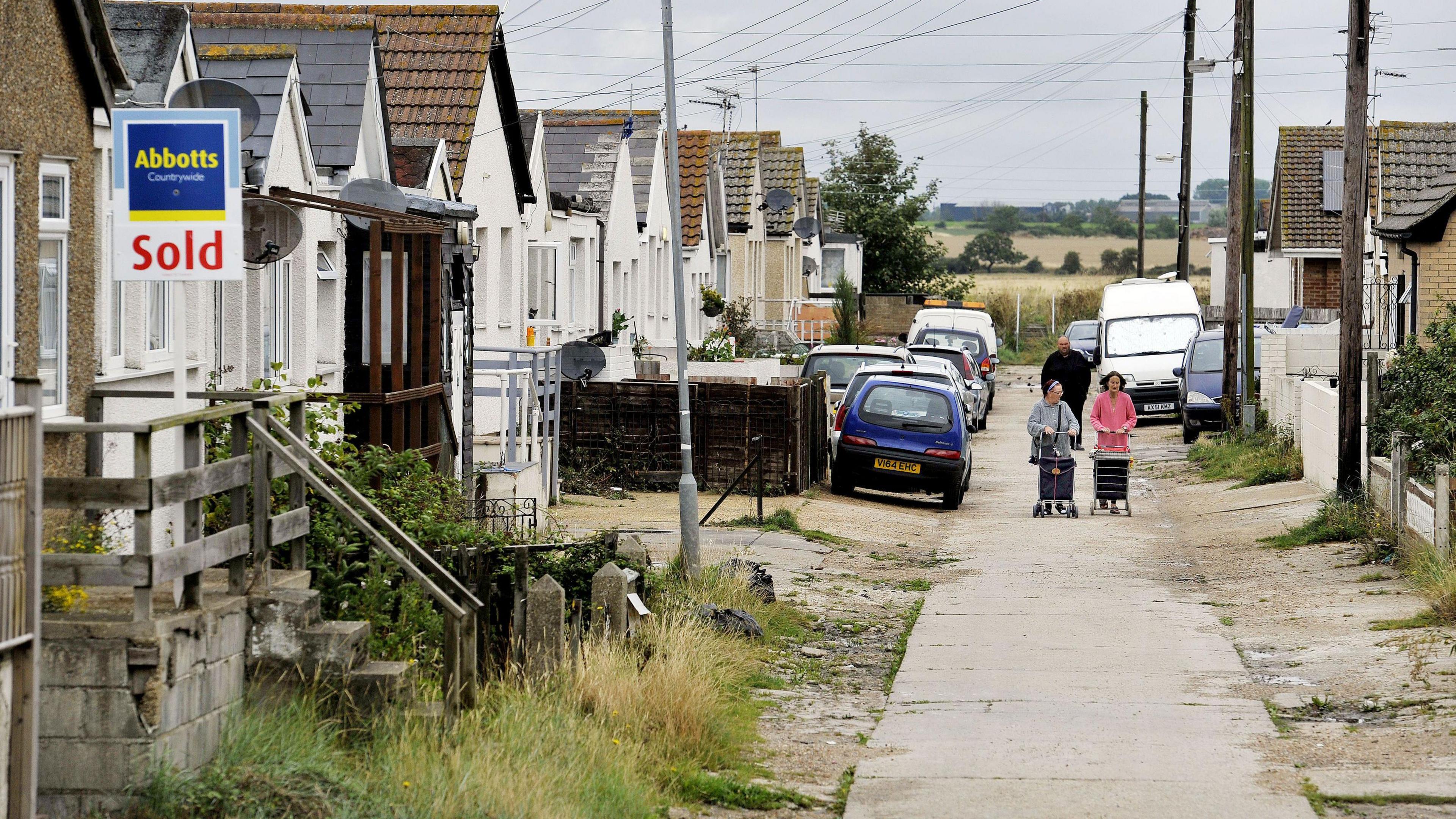
Jaywick near Clacton-on-Sea was named as the most deprived neighbourhood in England this week
Mr Scott believes mental healthcare is becoming "less about those suffering crisis, and with serious mental illness" and more about "people living with anxiety and depression".
He believes it is important to expand community services because there is a knock-on effect on the economy and physical health if these chronic conditions are not treated.
"Between 30% to 40% of [people using health services] are suffering anxiety and depression... so they end up going to hospital a lot."
He says when people do go into crisis for the first time, they are increasingly in areas with social challenges.
The neighbourhood of Jaywick Sands and Brooklands, near Clacton-on-Sea in Essex, has been named as the most deprived in England for the fourth consecutive time.
Learn from the past
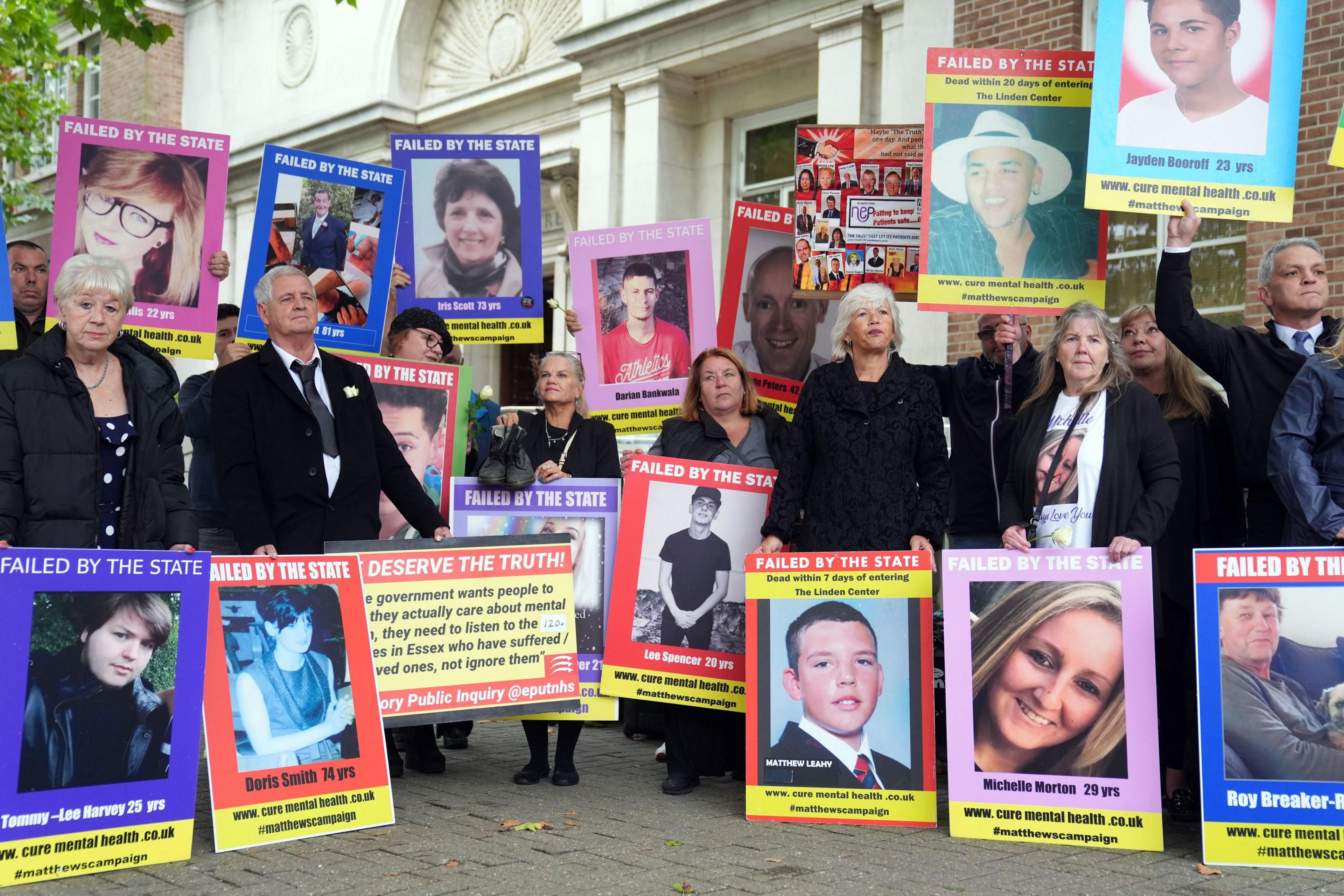
Relatives want real and lasting change to come from the ongoing Lampard Inquiry
Mr Scott claims - that despite ongoing criticism of the trust in the coroner's court - the transformation of the EPUT is already "enormous".
But he admits that because of the "huge turnover" of staff since 2020, it may be difficult to trace past employees to give evidence to the Lampard Inquiry.
The trust has been asked to send them letters. He says the trust does not know how many are taking part in the inquiry.
Evidence suggests safety issues remain at the wards in Essex.
Coroners have written six letters to EPUT, external this year, because they are concerned more patients could die if it does not take action.
Some wards are full. Board papers reveal that on 12 September, there were three patients in crisis waiting for a bed, external and 53 were placed "out of area".
'We begged for help for years but it wasn't there'
- Published28 October
I asked Mr Scott if he would feel confident if a family member was treated at the trust.
"Yes, 100%," he says quickly.
He hopes national guidance will come from the Lampard Inquiry.
"I think the inquiry is difficult for everybody. It's difficult for us as an organisation, it's difficult for families who have to relive everything again and navigate the legality of it all," he says.
"But from this, we've got a real drive to show people that we've learned and it's different and this service is fit for a modern day mental health service for the population of Essex.
"We will get recommendations that will take us further, I've no doubt at all, from the inquiry, and there'll be some difficult messages for us. And mental health will get some very good recommendations on a national footprint as well.
"So it's difficult; it doesn't feel unfair and I think good will come from it."
Get in touch
Do you have a story suggestion for Essex?
Follow Essex news on BBC Sounds, Facebook, external, Instagram, external and X, external.
- Published13 October
- Published6 May
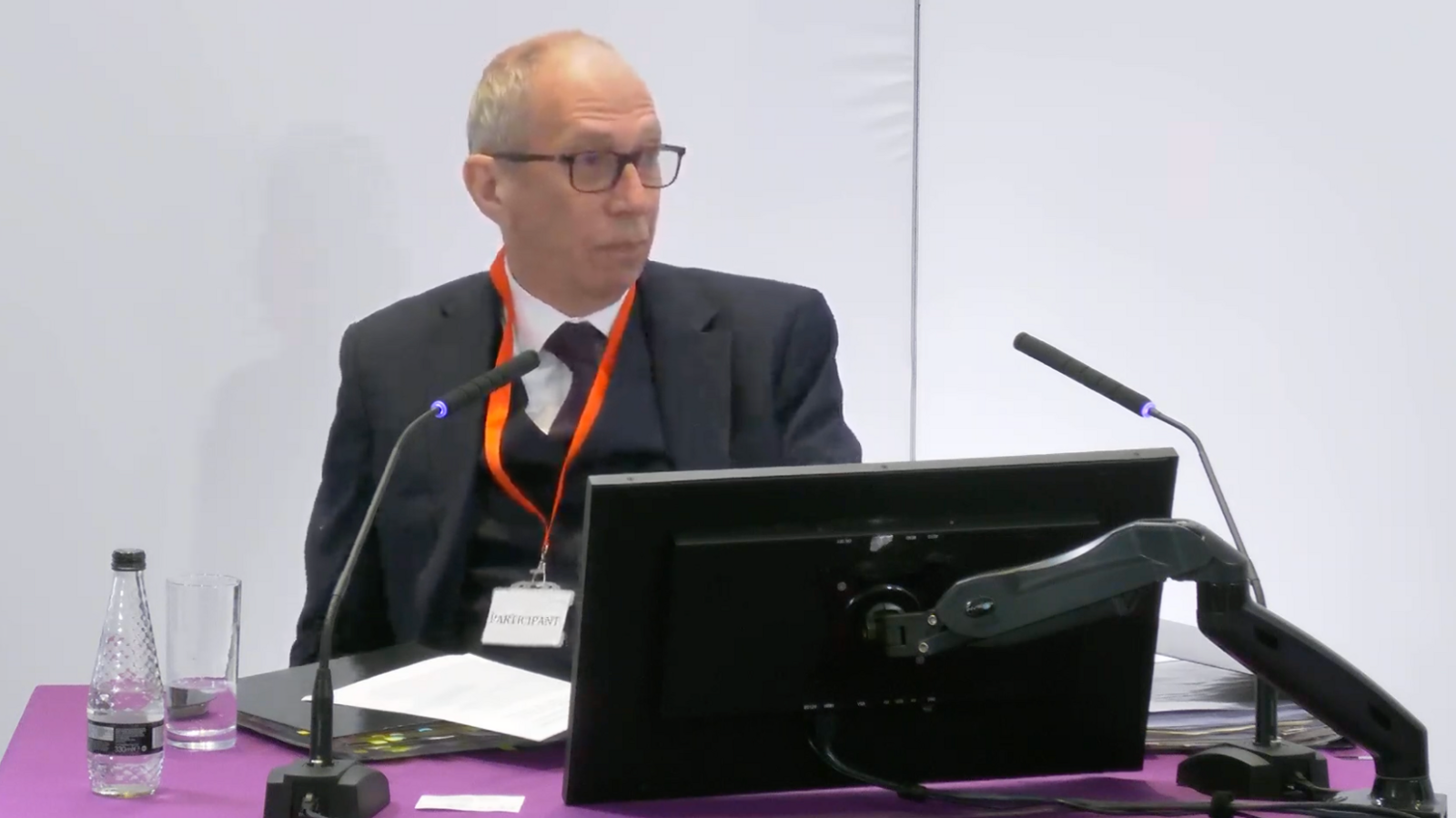
- Published30 April
